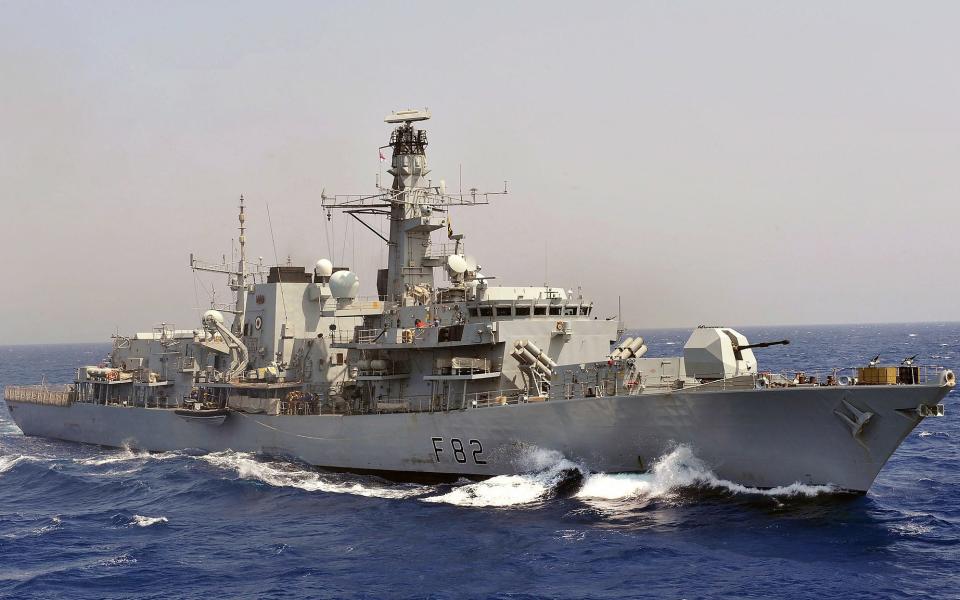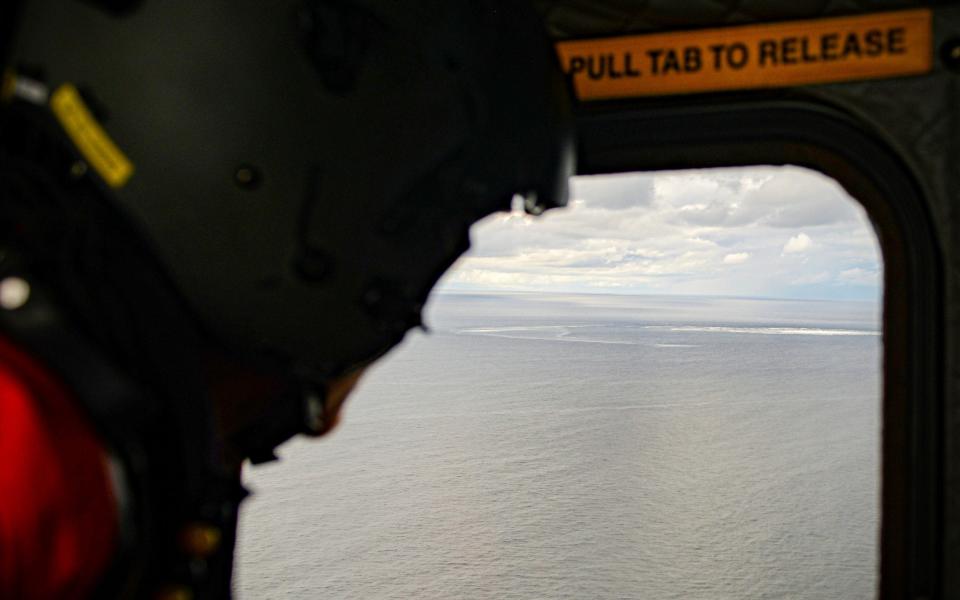Drone-loaded seabed ship is latest weapon in Royal Navy's arsenal to counter Russian threat

A new ship that can launch drones to keep the seabed under surveillance for threats to underwater cables and pipelines will be purchased for the Royal Navy immediately because "I need it now", the Defence Secretary has said.
The “seabed warfare ship” will be specially modified to counter the increased threat from Russia in the wake of a suspected sabotage attack on the Nord Stream gas pipeline to Germany.
Ben Wallace stopped short of blaming Russia for the attack in an interview with The Telegraph, but said it was clear that it was a "deliberate act".
Drones and other undersea technology will be launched from the ships, in a bid to better protect critical national infrastructure. Design work on a second, bespoke vessel will start in 2023.
Ben Wallace said: “Britain [is] deeply vulnerable because we are so dependent on our internet cables.
“We will have to do a lot more work to look at those infrastructures to satisfy ourselves that there is no more vulnerability.”
On Monday night, the Royal Navy moved a Type-23 frigate to the North Sea to work with Norwegian counterparts, providing security to workers on gas pipeline infrastructure.
HMS Enterprise, an Echo-class survey vessel, is already patrolling the area following concerns about Russian naval activity.

The first of the two 'Multi-Role Ocean Survey Ships', to be known as the Seabed Warfare variant, will be operational by the end of next year.
This vessel will be specifically equipped with underwater drones and other sensitive technology similar to the Russian micro spy submarine Losharik, which is thought to be capable of tapping or destroying internet cables.
The second ship, to be used for “deep water military data gathering”, will be a longer programme and built in the UK.
The Defence Secretary said the reason for buying and modifying an existing vessel from the open market was that “I need it now”.
He said the world is “too vulnerable” to take the risk of delaying the purchase to design a ship from scratch.
“We’ll commission a second one with slightly different functions.
“We often see - and have done over months and years - suspicious activity by Russian spy ships and Russian vessels doing things in the region of our cables and pipelines.
“It’s not uncommon [to see] Russian spy ships.”
He said it was “no secret” the Russian Navy’s Special Mission Submarine programme, run by GUGI (the Main Directorate of Deep Sea Research) and based in Olenya Bay on the Kola Peninsula on the coast of the Barents Sea, was targeting critical national infrastructure in the North Atlantic.
Investigations are still ongoing into the blasts on the Nord Stream pipelines on Sept 26, for which western countries had no warnings, Mr Wallace said.
“We didn’t have any direct warning that this was going to happen, I don’t think anyone did.”
Although no country has yet been blamed for the explosions, Mr Wallace said “it looks like a deliberate act” which could draw a response from Nato.

“If it was a deliberate and malicious act by a hostile state [the response] would probably be planned through NATO,” he said on a visit to British troops in Poland.
“Nato would have to think about how it would respond.
“In parallel, depending on how the pipeline was damaged, there would be work for all of us to check our own infrastructure and protect it.”
Mr Wallace said the pipeline attack was being treated as a crime by Danish and Swedish authorities.
“The legal status is that it's in the economic zone of both Sweden and Denmark but is in international waters,” he said, cautioning “if the Russians wanted to turn up and investigate - to help - there’s nothing you can do to stop them.
“They could just turn up and do it, so it’s important we keep an eye out.”
However, the Defence Secretary said any potential offer of help from Russia during the ongoing investigation would not be taken up.
“I always think it’s best to keep the fox away from the chicken coop,” he said.

